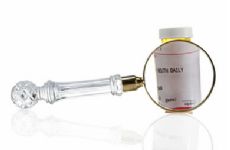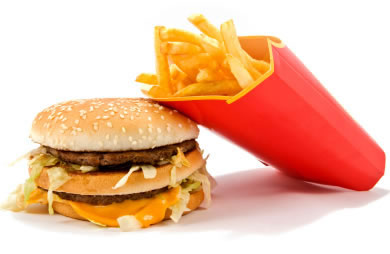There's nothing like an upcoming wedding, class reunion or beach vacation to kick a fitness plan into high gear. When you have just a matter of weeks or days to look your best for a big event, it can be tempting to try a last-minute "emergency" weight loss plan. One that's gotten a lot of attention lately is the Military Diet. Is it worth a try, or do the potential dangers and drawbacks rule it out as a safe and viable option?
What is the Military Diet?
Named for the soldiers who used it to lose weight quickly, this three-day diet has also been a go-to tool for performers and dancers. The crux of the diet is calorie restriction: For three days, participants are limited to 800 to 1,000 calories per day.
According to the site, the diet kick-starts your metabolism, promotes fat burning and is a form of intermittent fasting, resulting in weight loss of up to 10 pounds in a week. Seniors, those with chronic medical conditions and pregnant or nursing women should not follow the plan.
What the Experts Say
Toby Amidor, nutrition expert and author of "The Greek Yogurt Kitchen," says the quick-fix Military Diet has no scientific merit. "According to the National Institute of Health, a healthy rate of weight loss is one to two pounds per week," says Amidor. "The creators don’t seem to take this important guideline seriously. The diet's website states that you are likely to gain the weight back, which is unsettling."
Beyond the likelihood of regaining weight, Amidor points out that the diet could actually be dangerous. "The listed acceptable foods have no rhyme or reason, and if someone was to follow this plan for a long period of time, it could possibly result in insufficient nutrient intake."
Becky Hand, SparkPeople's registered dietitian, agrees that the Military Diet offers little to no benefit for those pursuing a long-term healthy lifestyle. "To maintain weight loss, one must learn the skills for lifelong success, but no skills are being learned with this diet," says Hand. She also points out that as a result of the very low calorie intake, it's lacking in key nutrients, omega-3 fatty acids and fiber.
The Military Diet Meal Plan
The diet's website lists very specific (and sparse) meal plans for the first three days:
DAY ONE
Breakfast:
1/2 grapefruit
1 slice toast
2 tablespoons peanut butter
1 cup coffee or tea (with caffeine)
Lunch:
1/2 cup tuna
1 slice toast
1 cup coffee or tea (with caffeine)
Dinner:
3 ounces any type of meat
1 cup green beans
1/2 banana
1 small apple
1 cup vanilla ice cream
DAY TWO
Breakfast:
1 egg
1 slice toast
1/2 banana
Lunch:
1 cup cottage cheese
1 hard-boiled egg
5 saltine crackers
Dinner:
2 hot dogs (without bun)
1 cup broccoli
1/2 cup carrots
1/2 banana
1/2 cup vanilla ice cream
DAY THREE
Breakfast:
5 saltine crackers
1 slice (1 ounce) cheddar cheese
1 small apple
Lunch:
1 hard-boiled egg (cooked however you like)
1 slice toast
Dinner:
1 cup tuna
1/2 banana
1 cup vanilla ice cream
For those who wish to continue the diet for another four days, the calorie limit is bumped up to 1,500 per day with an expanded menu. Hydration is emphasized, with a recommendation to drink water, caffeine-free herbal tea and black tea, using Stevia as the only sweetener.
Amidor isn't a fan of the strictness of the three-day diet, which includes no snacks, no added condiments and only limited substitutions. "The dieter is essentially following a 'blind' diet and just eating exactly what is on the list," she says. "A dieter should want to understand why they are eating certain foods and ask questions if no answers are really given."
If there is an upside, it's that the Military Diet can be downloaded for free, and the recommended foods are extremely affordable and easy to prepare. However, its lack of nutritional value and potentially dangerous accelerated weight loss cause most dietitians to frown upon this diet.
|
|

.png)













/7a5ea824-27a1-4330-b4e4-1d4a16d22f52.jpg)





